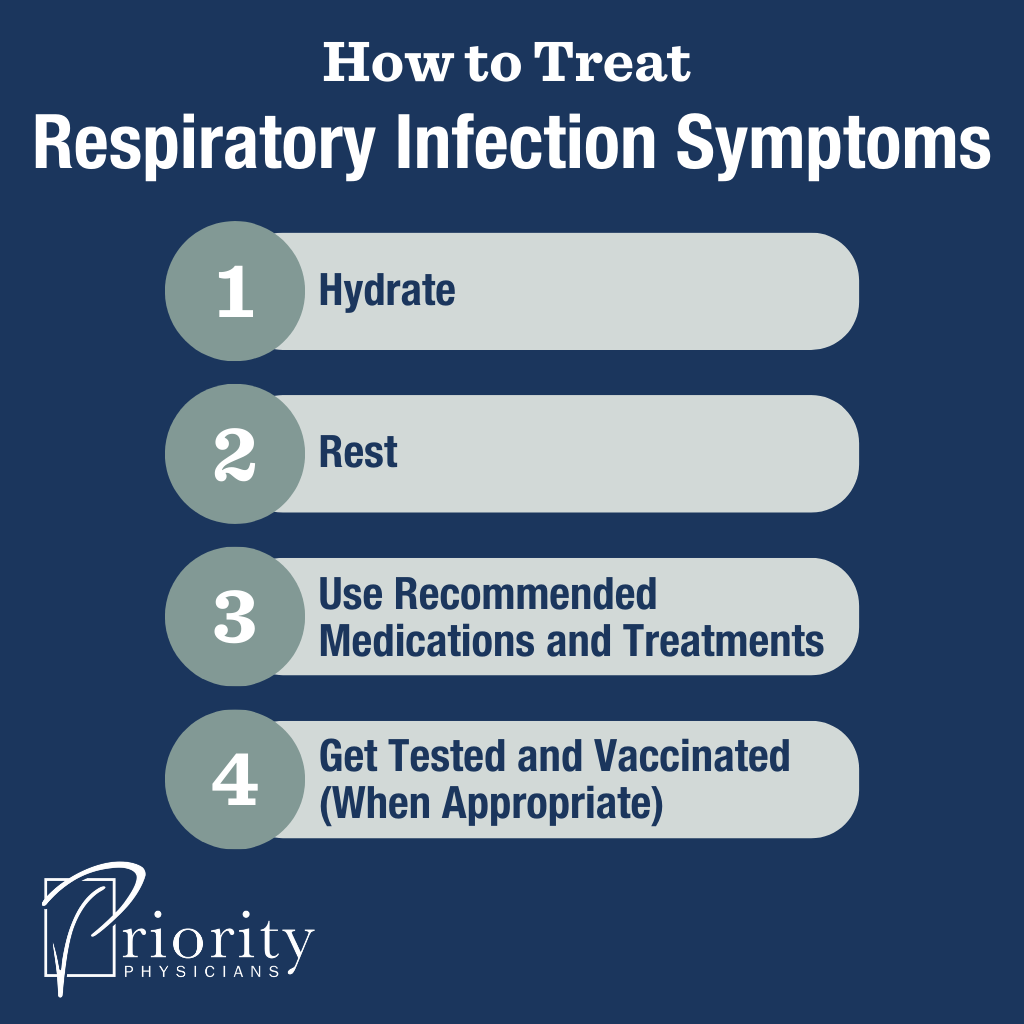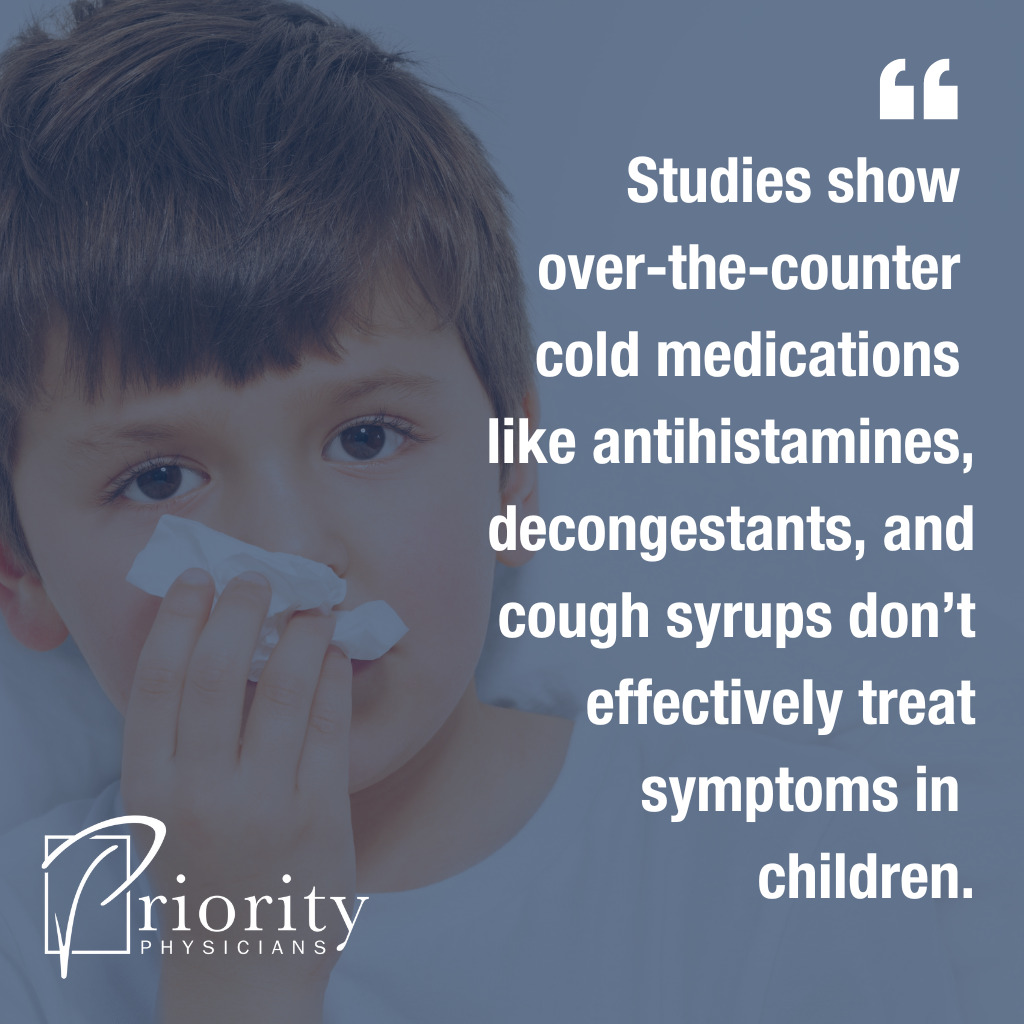Cold and flu season is in full swing, and recently, a lot of patients have called with questions about how to ease the suffering when they’re sick.
For children, this can be especially difficult. Many cold medications are unsafe or simply ineffective for children.
Respiratory viruses like the common cold, flu, and COVID-19 do tend to be seasonal — we see more cases during the winter months. But they can happen at any time of year, and they can happen frequently.
Given that some kids can have up to eight colds a year, it may seem like your child is constantly sick, especially if they’re in environments like school or daycare where they’re exposed to a lot of people daily.
When patients say, “My kids are always sick,” I usually ask if their kids are getting better between rounds of illness. If that’s the case, then we know everything is okay with their immune system — it’s just a bad cold or flu season for them.
In fact, getting these kinds of respiratory infections when they’re young helps children build their immune system! Every time a child comes down with a new kind of cold or flu, they’re building a library of illness that their body can recognize. This means that, over time, their immune system will be able to recognize these viruses and fight them off faster.
With some exceptions, these illnesses are a normal part of childhood. Here’s what you can do to help manage their symptoms.

How to Treat Respiratory Infection Symptoms
Hydrate
The mainstay of symptom management for respiratory infections doesn’t involve medication. It’s something much simpler — hydration. Make sure your child stays well-hydrated to keep their body in top shape to fight off their illness.
They may feel unwell and their appetite may be low, but make sure they’re getting plenty of fluids. Warm fluids like soup can help loosen mucus in the case of cough symptoms.
Rest
Your child’s immune system also needs sleep to repair itself and fight off infections. Make sure they get lots of rest, and consider placing a cool-mist humidifier in their room while they sleep to keep their respiratory tract from getting dry and irritated.
Use Recommended Medications and Treatments
Not all medications work the same for children as they do for adults. In fact, you may be surprised which ones just aren’t helpful for a sick child.
The options that are going to be effective at alleviating some of your child’s symptoms are fever reducers like acetaminophen (Tylenol) for children age two months and older and anti-inflammatories like ibuprofen (Advil) for children six months of age and older.
Other useful tools include moisturizing nasal saline sprays and suction to treat nasal congestion.
As for the remaining options in the drugstore, like over-the-counter cold medications, their usefulness for childhood cold and flu is actually a myth.
Myth #1: Cold medicine works and is necessary.
Studies show over-the-counter cold medications like antihistamines, decongestants, and cough syrups don’t effectively treat symptoms in children. They only work about as well as a placebo. When you combine this with the toxicity risk these medications pose to children, using them just isn’t worth it.
Over-the-counter cold medications shouldn’t be used in children under six years of age. Some pediatricians even suggest not using cold medications such as decongestants in children under twelve. Young children are more likely to have side effects or toxicity from these medications, which are unlikely to help anyway.
Myth #2: An antibiotic can cure my child’s cold/flu/upper respiratory infection.
Kids never need an antibiotic for a virus. By definition, antibiotics fight bacterial infections — not viral infections. The respiratory infections we’re talking about here are all caused by viruses, which means antibiotics won’t treat them. And taking antibiotics unnecessarily can make them less useful when you need to fight a bacterial infection in the future.
Get Tested and Vaccinated (When Appropriate)
There are tests available for influenza and COVID-19. In some very specific cases, antiviral medications can be of assistance against these illnesses. (If you’re interested in going that route, consult with your physician.)
Additionally, immunizations for influenza and COVID-19 can reduce the risk of infection, both of which are appropriate for kids over six months of age.

How Long Will Symptoms Last?
Symptoms tend to peak on day two or three of an illness and will gradually improve over the next 10 to 14 days. Sometimes a cough can linger for several weeks after that.
That being said, if your child develops difficulty breathing, a high fever (over 102 degrees), or trouble swallowing and staying hydrated, please contact your physician. We’d also like to see your child if their symptoms aren’t improving after a week or so of illness.
Most kids with a respiratory infection will get better after following the recommendations above, but there are some rare exceptions. Some children may have complications with their immune system, but those kids typically won’t rebound between illnesses.
Final Thoughts
If you’re worried your child is suffering from more than normal, recurring cold and flu symptoms, talk to your doctor. Symptoms of upper respiratory infections may not always be related to an immune system problem. Your child’s doctor may explore conditions like asthma or allergies, as well.

